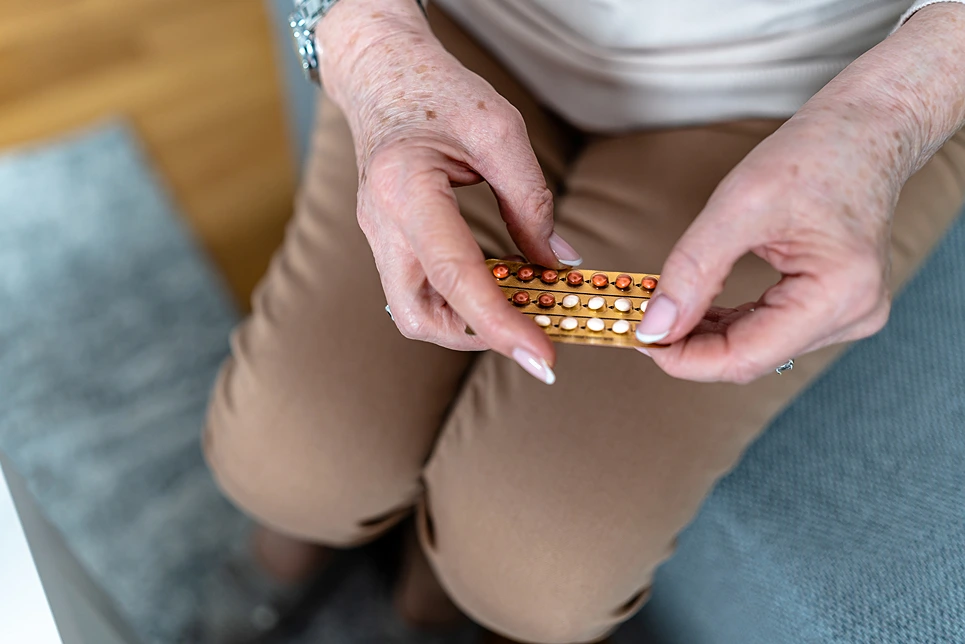Exploring the Benefits, Risks, and Responsible Use of This Treatment.
Testosterone’s Role in the Body

Testosterone is a hormone essential for various functions in both men and women. Although often associated with male characteristics, testosterone plays a vital role in female health as well. Let’s break down its key functions and why it matters.
- Testosterone’s Functions
- Sexual Development and Function: Testosterone is crucial for the development of male sex organs, sexual desire (libido), and the ability to maintain erections. In women, it contributes to sex drive and healthy sexual function.
- Muscle and Bone Health: Testosterone promotes muscle growth and strength, along with maintaining strong bones.
- Mood and Cognition: Testosterone influences mood, energy levels, and may play a role in cognitive functions like memory and focus.
- Red Blood Cell Production: This hormone helps stimulate the production of red blood cells, which carry oxygen throughout the body.
- Fat Distribution: Testosterone affects body fat distribution, influencing where the body stores fat.
What is Hypogonadism?
Hypogonadism is a condition where the body doesn’t produce enough testosterone. This can result from problems with the testicles (primary hypogonadism) or issues with the pituitary gland or hypothalamus in the brain (secondary hypogonadism). Causes of hypogonadism include:
- Aging
- Genetic conditions
- Injury or infection
- Medications
- Certain medical conditions (such as HIV/AIDS, pituitary disorders, etc.)
Symptoms of Low Testosterone
Low testosterone can cause a range of symptoms in both men and women, including:
- Low sex drive
- Fatigue and decreased energy
- Erectile dysfunction (in men)
- Loss of muscle mass
- Increased body fat (particularly around the abdomen)
- Depression or mood swings
- Difficulty concentrating
- Hair loss
- Bone loss (osteoporosis)
Important Note: It’s crucial to see your doctor if you experience these symptoms. Low testosterone can be diagnosed with a simple blood test. Other conditions can cause similar symptoms, so a thorough diagnosis is essential.
Understanding Testosterone Therapy

When testosterone levels are significantly low, testosterone therapy (TTh) may be recommended. It helps replace the testosterone your body isn’t producing adequately. Here’s what you need to know:
Types of Testosterone Therapy:
- Gels and Creams: Applied daily to the skin (shoulders, arms, abdomen).
- Injections: Administered into a muscle, typically every one to two weeks.
- Patches: Worn on the skin, replaced daily or every few days.
- Implants: Small pellets surgically inserted under the skin, releasing testosterone slowly over several months.
- Oral (Buccal) Tablets or lozenges placed between the cheek and gum.
Understanding Dosages
Your doctor will determine the dose and frequency of testosterone therapy based on your individual needs, symptoms, and blood test results. Doses are typically adjusted over time to achieve optimal blood levels of testosterone.
Who is a Candidate?
Testosterone therapy is generally recommended for men with confirmed low testosterone levels and associated symptoms. It may also be used as part of gender-affirming hormone therapy for transgender men and some nonbinary individuals.
Who Might Not Be a Candidate? TTh is typically not recommended for those with:
- Prostate cancer
- Breast cancer
- Untreated severe sleep apnea
- High red blood cell count
- Certain heart conditions
Testosterone therapy requires careful medical supervision and regular blood tests to monitor its effectiveness and safety. It’s crucial to work closely with your doctor to determine if TTh is the right choice for you.
Potential Benefits of Long-Term Testosterone Therapy
When used appropriately under medical supervision, long-term testosterone therapy can offer several benefits for those with consistently low testosterone levels. Here’s a closer look:
Improved Body Composition:
- Increased muscle mass: TTh can help increase muscle mass and strength, especially when combined with exercise.
- Reduced body fat: It aids in fat loss, particularly in the abdominal area.
- Stronger bones: Testosterone promotes bone density, reducing the risk of osteoporosis and fractures.
Metabolic Benefits:
- Improved blood sugar control: TTh may help improve insulin sensitivity, benefiting those with type 2 diabetes.
- Healthier cholesterol levels: It may positively affect cholesterol levels, potentially lowering “bad” cholesterol (LDL) and raising “good” cholesterol (HDL).
- Lower blood pressure: Some studies suggest TTh may help reduce blood pressure, particularly in those with hypertension.
Enhanced Sexual Function:
- Increased libido: Testosterone plays a key role in sex drive for both men and women.
- Improved erectile function: TTh can help improve erections in men with erectile dysfunction related to low testosterone.
- Better orgasms and sexual satisfaction.
Mood and Mental Health:
- Improved mood and energy: TTh can help improve overall mood, reduce fatigue, and boost energy levels.
- Reduced depression symptoms: Studies suggest it might play a role in lessening symptoms of depression in some individuals.
- Possible cognitive benefits: Research is ongoing regarding potential improvements in memory, focus, and other cognitive functions.
Other Potential Benefits
Researchers are continuing to explore other areas where testosterone therapy could be beneficial, including:
- Improving quality of life in older men and women
- Enhancing physical function and reducing frailty in the elderly
- Managing certain conditions affecting women, such as polycystic ovary syndrome (PCOS)
The degree of benefit can vary from person to person. Discussing potential benefits with your doctor in the context of your health is crucial.
Potential Risks and Side Effects of Long-Term Therapy

While testosterone therapy offers benefits, it’s essential to be aware of the potential risks and side effects. Open communication with your doctor is crucial for safe and effective treatment.
- Heart Health and Testosterone: Research on the long-term cardiovascular effects of TTh has produced mixed results. Some studies suggest a potential increased risk of heart attacks and strokes, while others indicate no increased risk or even possible heart health benefits. More research is needed to fully understand this relationship.
- Prostate Health Concerns: Testosterone can stimulate the prostate gland. Regular prostate exams (including PSA blood tests) are essential, especially for older men or those with a family history of prostate cancer. TTh is generally not recommended for men with existing prostate cancer.
- Other Potential Side Effects:
- Acne or oily skin
- Sleep apnea (or worsening of existing sleep apnea)
- Fluid retention and swelling
- Increased red blood cell count (which can become too high)
- Breast enlargement or tenderness (gynecomastia)
- Reduced sperm production and possible infertility
Important Notes:
- The risk of side effects can vary based on dosage, method of delivery, and individual factors.
- Some side effects may subside as the body adjusts to TTh.
- Your doctor will work with you to manage side effects and regularly assess the risks and benefits of continued therapy.
It’s vital to discuss any concerns you may have with your doctor. They will help you weigh the potential benefits against the risks in the context of your individual health profile.
Monitoring and Follow-Up During Testosterone Therapy
Regular monitoring is essential for safe and effective long-term testosterone therapy. Your doctor plays a key role in minimizing risks and optimizing benefits.
The Importance of Regular Checkups:
- Blood tests: Regular blood tests check testosterone levels, red blood cell counts, cholesterol, liver function, and other essential markers.
- Prostate exams: Prostate exams, including digital rectal exams (DRE) and PSA (prostate-specific antigen) blood tests, screen for prostate health issues.
- General health assessments: Your doctor will monitor other factors related to your overall health, such as blood pressure, weight, and potential side effects.
Adjusting Therapy:
Your doctor may adjust your testosterone dose, the delivery method, or the frequency of treatment based on your individual response and monitoring results. This helps ensure testosterone levels stay within a healthy range.
What to Expect:
The frequency of checkups will depend on your health, age, and response to therapy. In the initial stages, more frequent monitoring is typical. Once stable, checkups may be less frequent but remain essential for long-term safety.
Open Communication
Maintain open and honest communication with your doctor. Report any side effects, changes in symptoms, or concerns you might have. This helps them promptly address any issues.
Regular monitoring helps ensure you receive maximum benefits from testosterone therapy while minimizing potential risks. It’s a crucial part of responsible treatment.
Testosterone Therapy Beyond Hypogonadism
While the primary focus of testosterone therapy is treating hypogonadism, researchers are actively exploring its potential in other areas. It’s important to note that research in these areas is ongoing, and more studies are needed to fully understand the benefits and risks.
Age-Related Testosterone Decline: Testosterone levels naturally decline with age in men. Research is ongoing to determine if TTh can improve muscle strength, bone health, cognitive function, and overall quality of life in older men with decreasing testosterone levels.
Women’s Health: Some studies explore the potential benefits of testosterone therapy for women with low testosterone due to certain conditions, such as menopause or after surgical removal of the ovaries. Potential benefits may include improved sexual function, mood, and bone health.
Other Potential Applications: Early research suggests TTh might have future applications in managing conditions such as:
- Chronic fatigue
- Frailty and muscle loss in the elderly
- Depression in certain cases
- HIV-related muscle wasting
Conclusion

Testosterone therapy can be a valuable tool in managing hypogonadism and potentially offer benefits in other health areas. However, long-term therapy also carries potential risks. Here’s a recap of the key points:
- Benefits: TTh may improve body composition, metabolic health, sexual function, mood, and overall well-being.
- Risks: It’s important to discuss potential risks with your doctor, including possible effects on heart health, the prostate, and other aspects of your health.
- Individualized Approach: Testosterone therapy decisions should be made in close collaboration with your doctor based on your individual needs, health profile, and preferences.
- Ongoing Research: Research continues to shed light on the long-term effects and potential new uses for testosterone therapy.
If you experience symptoms of low testosterone, don’t hesitate to talk to your doctor. They can help determine if testosterone testing is appropriate and discuss whether testosterone therapy might be right for you.

